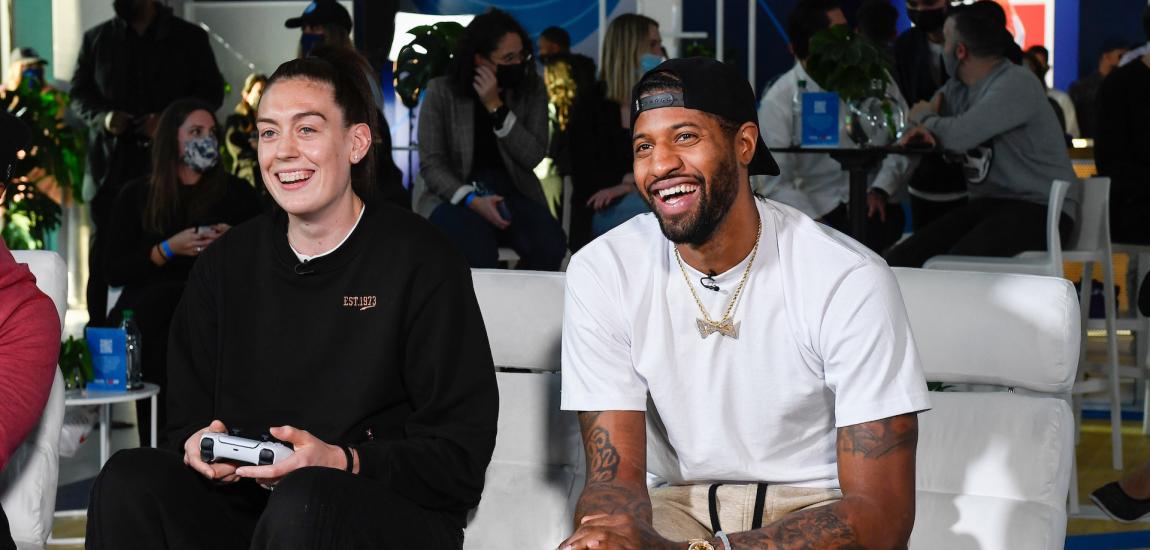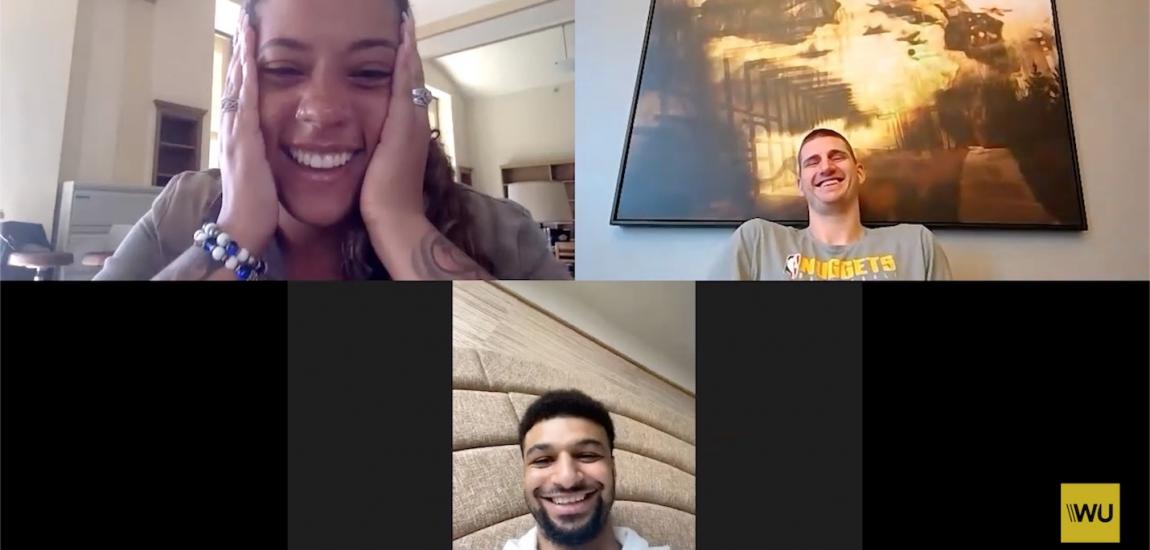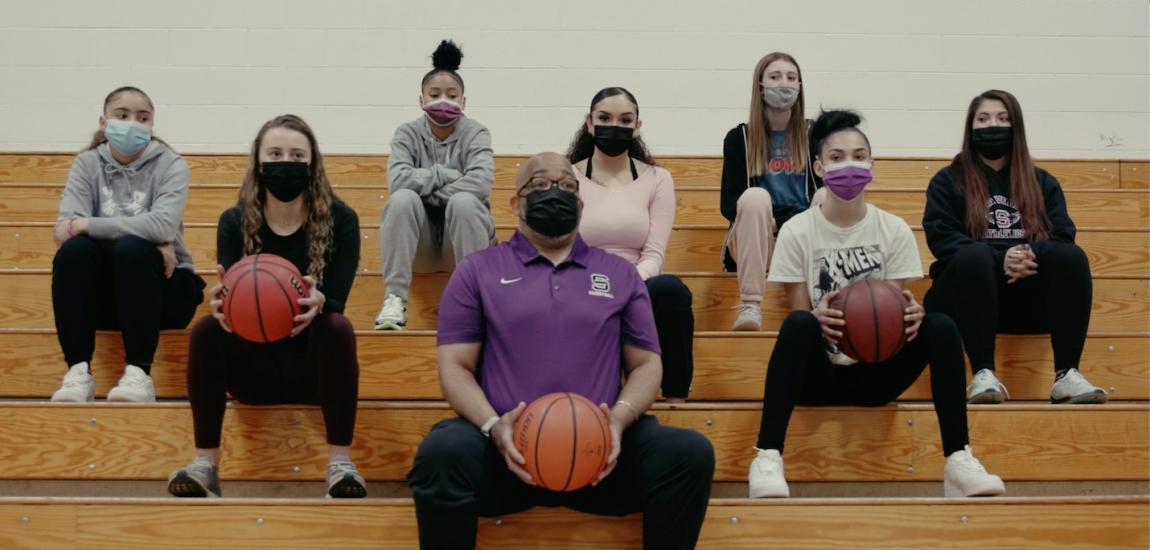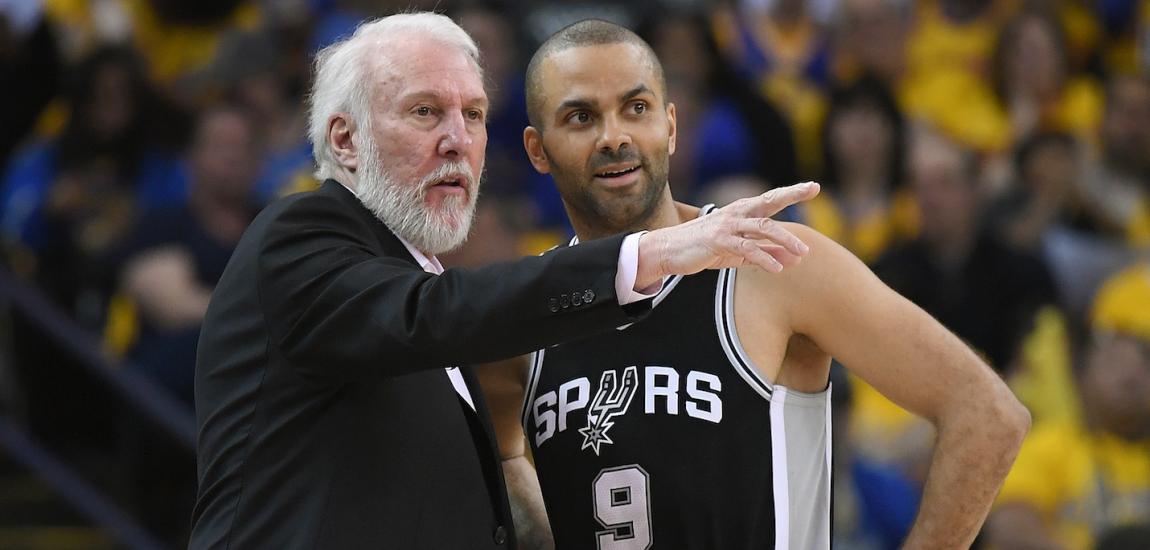Dennis Rodman is in a rough neighborhood.
It's 1988 and he's a young star on a championship NBA team. But on this morning he's in his car, pulling over to a street corner in a part of Detroit rarely if ever visited by NBA players like himself.
He doesn't know any better. And he doesn't care.
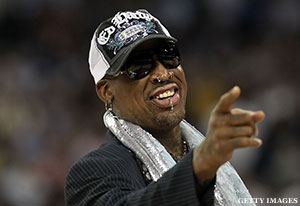
Rodman opens the door to a homeless man. He proceeds to drive out to Auburn Hills, his workplace, where for a few hours, the unkempt stranger will receive the VIP treatment.
Rodman, who came from difficult beginnings, doesn't worry what people may say. To him, he's just making someone's day by providing game tickets that he has at his disposal. But it doesn't stop there.
Afterward, Rodman makes the return trip downtown, stopping first at The Gap. He takes the stranger inside, outfits him in new clothes and picks up the tab. They get back in the car and continue to drive.
They reach the corner. Rodman pulls out of wad of cash, hands it to the stranger and sends him on his way.
"I used to do that a lot," Rodman says now, his eyes hidden from the bright television lights by dark sunglasses that complete an ensemble best described as fashionably mismatched. "And a lot of people don't know that."
The softer side of Dennis Rodman is tougher to detect these days.
It never used to be that way when his NBA career began in 1986 with the Pistons. Before the myriad tattoos and piercings that adorn his ears, nostrils and bottom lip, Rodman was a scrawny, ink-free workaholic.
From behind the dark glasses, he looks back to a time when he describes himself as a immature child who, by his own admission, had to be kicked in the rear a few times by teammates he always considered his older brothers.
Back then, he had to work for everything he got. Despite being routinely out-sized, Rodman would find ways to make his 6-foot-7 pipe cleaner of a body get to rebounds. He would catapult himself over a courtside row of fans in pursuit of a loose ball. He would chase down an errant pass and put it in the hoop, pumping his fist to celebrate.
It's a side of Dennis Rodman that the 49-year-old newly-elected Hall of Famer realizes his three children never knew.
It's history that doesn't make the cut on the reality television shows.
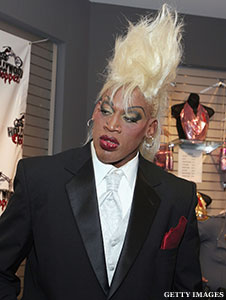
It's a side of Dennis Rodman that still exists if you are willing to dig deep. It's a side, Rodman acknowledges, some people don't want to find.
"A lot of people will look at me and say, there goes Dennis Rodman the party guy, there goes Dennis Rodman the bad boy," Rodman said before the Pistons retired his No. 10 jersey in a halftime ceremony at The Palace of Auburn Hills. "It's very difficult for people to see me as a cool, loving father figure.
"They just see one side of Dennis Rodman."
Perhaps, that is why Rodman's recent trip to Detroit was necessary. The last time the Pistons extended Rodman an invitation, he declined, citing a travel schedule that wouldn't allow him to return to the place his NBA career began.
Back then, the wounds that remained from his Detroit departure following the 1993 season hadn't yet healed. He wasn't prepared to embrace a franchise that forced him out after he helped lead the Pistons to back-to-back NBA championships.
But when they called this time, informing him they planned to hang a banner bearing his name in the rafters, Rodman knew it was time. He was ready to revisit the other side of him, opening a window to his three children, giving them a new glimpse of their father.
As they passed through the arena hallway, Rodman stopped, glancing at murals displaying images of himself and fellow Bad Boys Bill Laimbeer, Rick Mahorn and John Salley.
Before the halftime ceremony began, Rodman's wife and children watched a montage of video clips from his Pistons past, seeing for the first time what Rodman means to Detroit.
"My kids never saw me play, they never saw the videos," Rodman said. "This is going to be the first time a video of their father actually doing something positive in life. So it's going to very emotional for them to walk and see something that is very pure and very cool."
The occasion was also emotionally taxing on Rodman.
Since learning of the Pistons' plan to retire his jersey, Rodman constantly expressed surprise at the honor. Hours before the ceremony, Rodman -- who averaged 13.1 rebounds a game and who twice was named the NBA's Defensive Player of the Year -- claimed he wasn't deserving of his name joining other former Pistons' greats.
When asked why, Rodman struggled to answer.
For the better part of 45 seconds, Rodman fought himself to form words into a sentence. He bit his lip, trying not to let his emotions escape. He strung two or three words together before again catching himself. Tears poured from under his glasses, streaming down his cheek.
"I just feel I didn't deserve to have my jersey retired because I didn't do as much as I should have here," Rodman said. "I don't know what to say."
The emotional response wasn't unexpected.
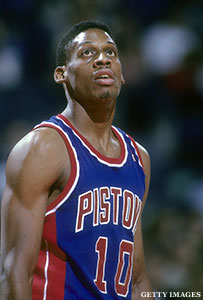
There, in that moment, the Dennis Rodman who used to pick up the homeless before games again emerged. Although his outward appearance has changed and his reputation as a bad boy has transitioned from the basketball court to TV and struggles with alcohol have replaced his Hall of Fame accomplishments, Rodman -- at his core -- remains the same.
"If you know Dennis, then you know the tender soul that is underneath everything you see on the outer part," says former Pistons' guard Isiah Thomas. "He is as gentle and kind a person as you would ever want to know."
Quickly approaching 50, Rodman's work ethic has carried over to fixing himself. He travels the world, making appearances as a celebrity disc jockey and commercial pitch man.
He recently returned from Lithuania, where he filmed a commercial for Hotels.com. As when he was winning NBA championships, including three with Chicago after he left Detroit, he is heavily sought after.
Long-time agent Darren Prince says Rodman can't go anywhere in the world without being bombarded by fans when he steps off a plane or out of a limousine. He continues to do his own thing, enjoying a life "just being Dennis Rodman," Prince says.
But that started with basketball. Before having his number retired two days before the 2011 Basketball Hall of Fame class was introduced, Rodman confirmed that he had heard from Hall officials, alerting him of his pending induction.
He said despite everything that has happened since, he felt as if what he had done on the court during his 14-year career should stand for something. He will enter the Hall of Fame warts and all, grateful that voting members of the Hall's committee chose to consider his basketball career over the image he continues to work on.
"They could have went the other way and said, 'Dennis, some of the things you have done are not conducive to the Hall of Fame," Rodman told reporters at the Hall of Fame press conference in Houston.
As he did days earlier in Detroit, Rodman accepted the latest honor in his own style, wearing an open shirt, sunglasses, jeans and a leopard-print scarf. While the team he will enter the Hall of Fame representing remains in question, one thing is certain.
Rodman will enter the Hall as a humble man with his heart on his sleeve for all to see –- whether they accept him or not.
"There's a lot of things that guys like me have been through in our lives -- on and off the court -- and have persevered," Rodman said. "In about four weeks, I will be 50 years old and I can't believe I made it to that.
"I have no regrets. If I could change time and go back and say, 'OK, Dennis, you need to do this, this and this,' -- nope. I think what I've done in the NBA is very significant and there's nothing I can do about that but move on and persevere in life."
Jeff Arnold is a Michigan-based sports reporter. He can be reached at jeffarnold24@gmail.com.

